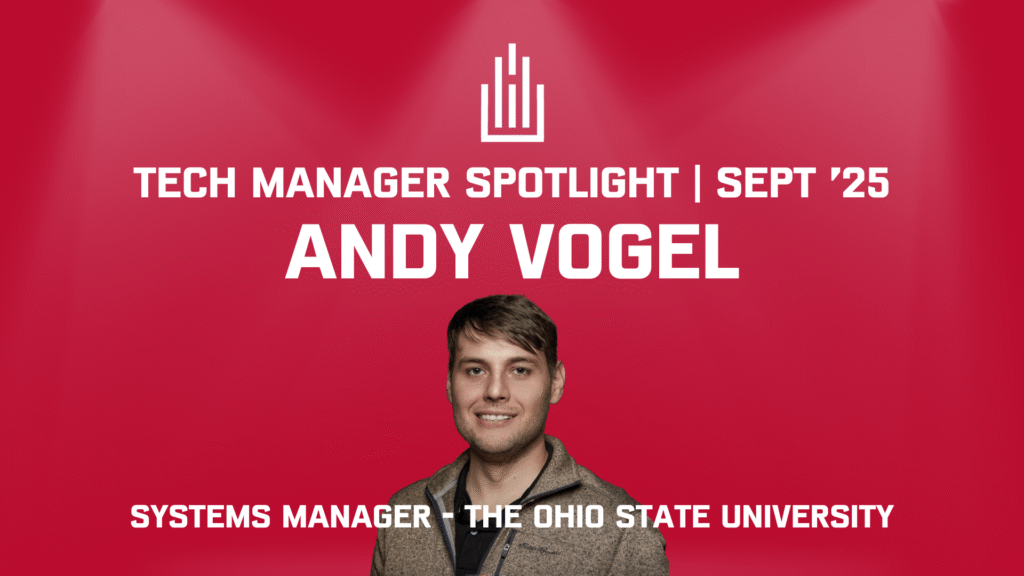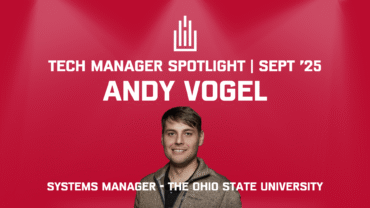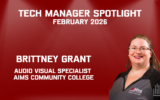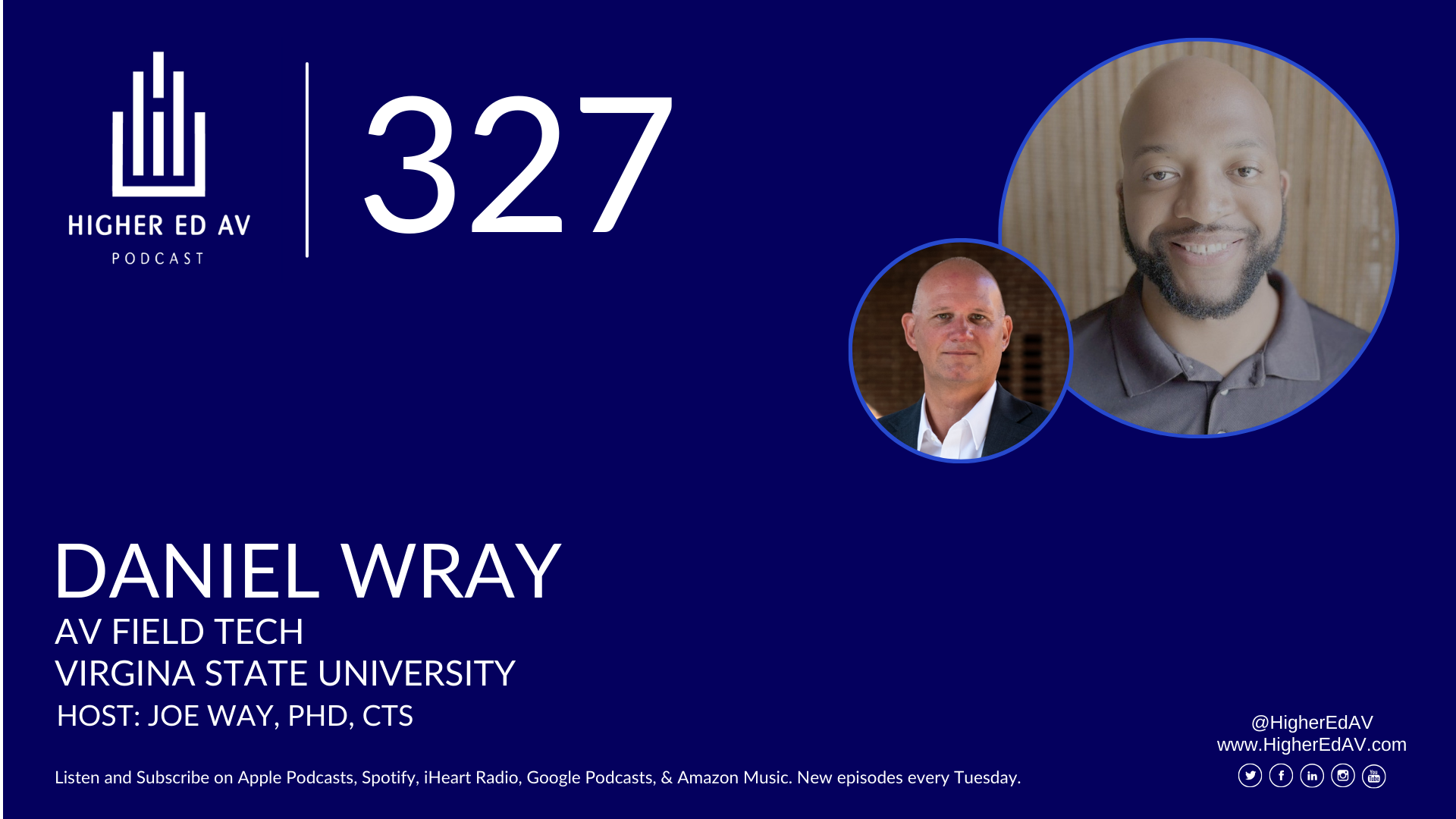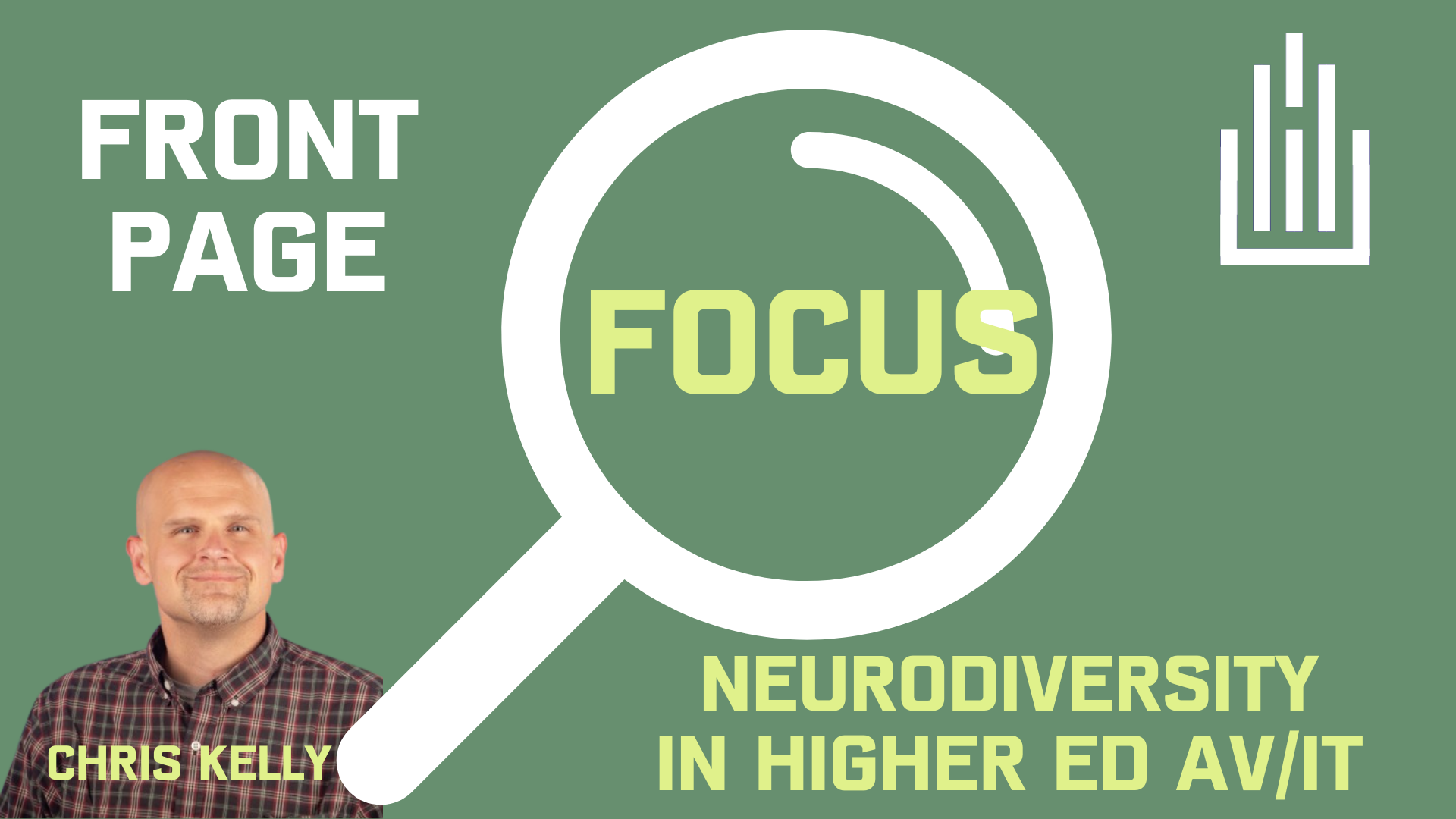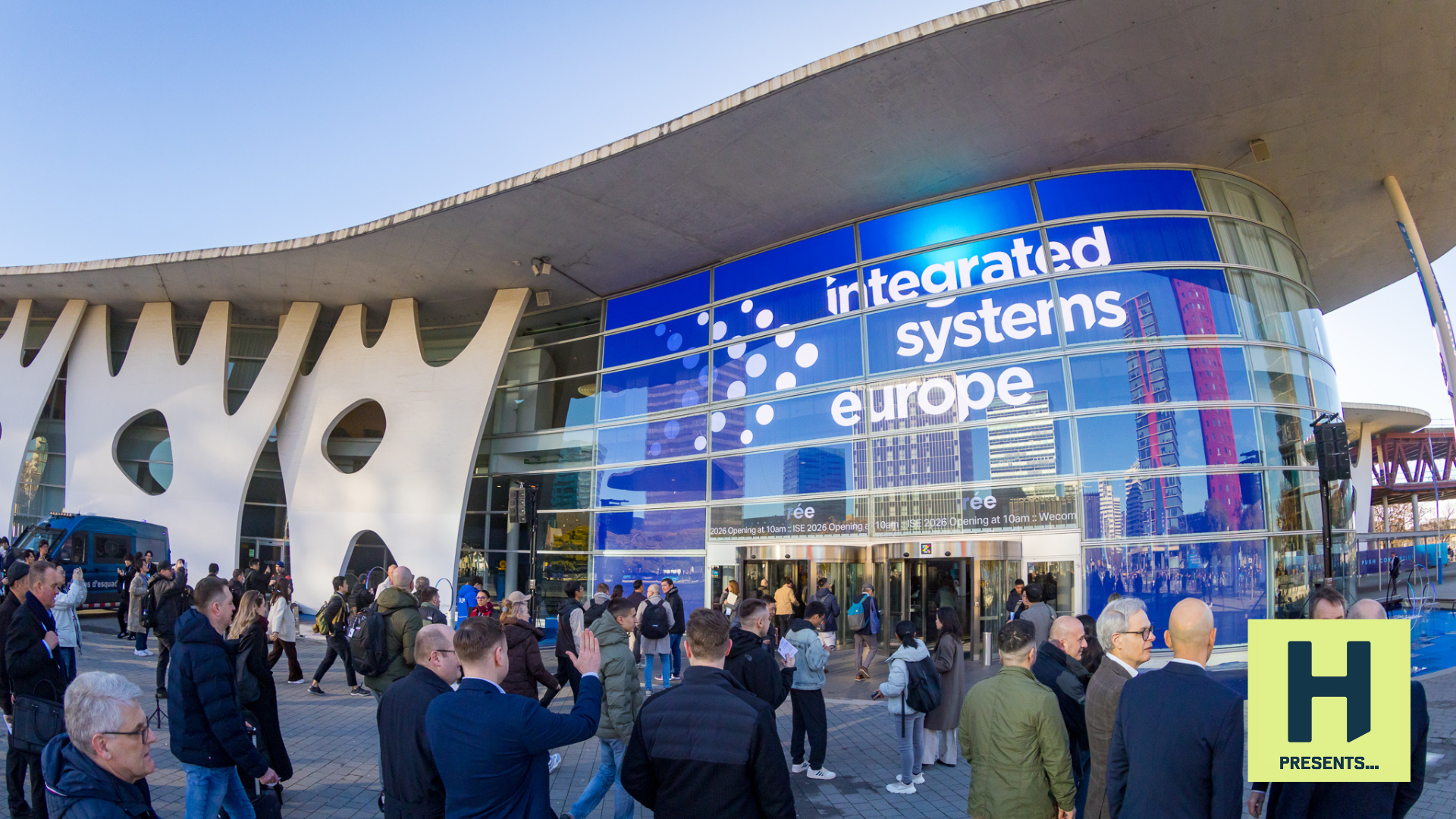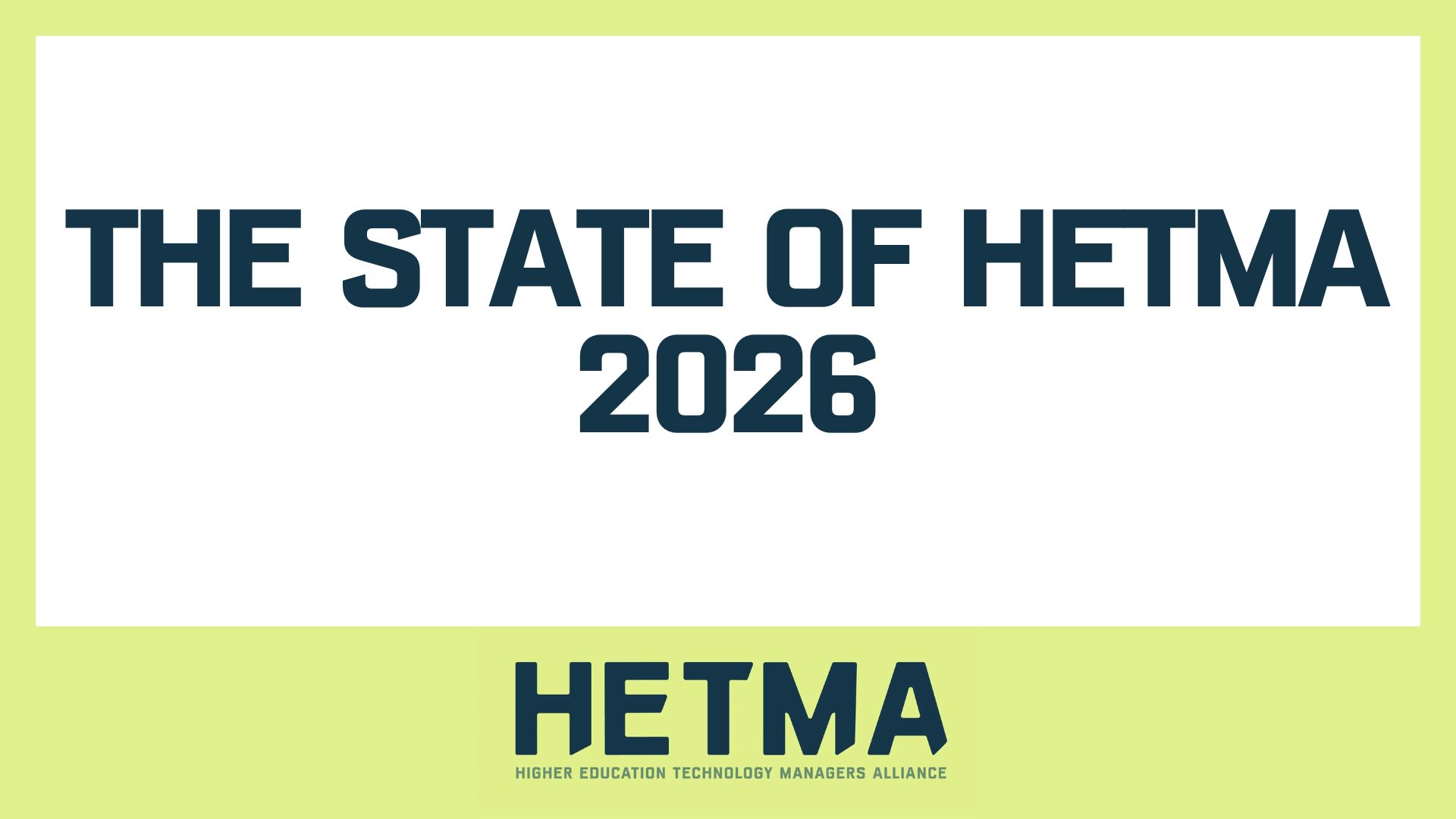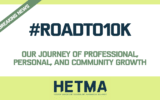Spotlight on…
Andrew Vogel
Systems Manager
The Ohio State University

Connect with Andrew Vogel: https://www.linkedin.com/in/andy-vogel/

Andrew Vogel is a forward-thinking instructional design specialist and AV leader at The Ohio State University with a focus on integrating emerging technologies and ethical AI into higher education. Currently pursuing his dissertation on Graduate Teaching Assistants’ self-efficacy with AI tools, Andrew is leading a research study involving IRB-approved protocols, participant interviews, and data collection. His work aims to better understand how future educators interact with AI in the classroom, with an eye toward fostering both confidence and competence in instructional innovation.
Andrew describes his leadership style as collaborative and adaptive. He prioritizes listening, mentoring, and empowering his team members to experiment and take calculated risks. “I lead by example in tech adoption and ethical AI use,” he explains, “but I also believe in creating space for others to grow independently.” Through regular scrum meetings, book clubs, and faculty coffee hours, he cultivates a culture of open dialogue, cross-campus collaboration, and shared learning.
I lead by example in tech adoption and ethical AI use, but I also believe in creating space for others to grow independently.
Deeply engaged in professional development, Andrew credits organizations like EDUCAUSE and HETMA with helping him build lasting professional connections and stay on the leading edge of higher ed technology. He jokes that “attending out-of-state events provides opportunities to meet your co-workers,” but the sentiment highlights the importance he places on networking and community.
Andrew sees AV in higher education evolving toward immersive, personalized, and data-informed experiences. Whether through VR-enhanced meditation or AI-powered learning environments, he believes the next generation of AV solutions will center on accessibility, personalization, and ethical integration. “As end users become more familiar with Tier 1 tasks,” he notes, “we’ll unlock new opportunities for deeper, more meaningful AV installations.”
A key lesson he’s learned in his career is that technology adoption doesn’t always equate to understanding. “You have to slow down, ask the right questions, and make sure faculty feel confident—not just equipped.” He applies this philosophy across all areas of his work, always aiming to bridge the gap between tools and outcomes.
You have to slow down, ask the right questions, and make sure faculty feel confident.
For those new to AV or higher ed tech, his advice is simple but powerful: start with empathy. “Understand your users—students, faculty, staff—and build solutions that meet their real needs. Also, stay curious and keep learning.” Andrew is passionate about demystifying instructional design, noting that it’s often mistaken for tech support or graphic design. In reality, he sees it as strategic consulting—helping subject matter experts bring their ideas to life with the right tools and frameworks.

Thank you for joining us for this month’s edition of the “Tech Manager Spotlight.” Start by telling us a little about what you do and a little about your background.
I’m an Instructional Design Specialist at The Ohio State University, where I collaborate with faculty and students to develop innovative digital learning experiences. My background includes a BS in Integrated Language Arts, an MA in Educational Technology, and I’m currently pursuing an EdD in Higher Education and Student Affairs.
Have you always worked in AV? What did the path look like for you to get to where you are now?
I started out working in the College of Education and Human Ecology, supporting event spaces. When the classroom manager role opened, they needed someone to oversee the AV systems, digital signage, and maintain live events. I got pretty good at learning the various vendors and tricks of the trade. That experience led me to connect with AVIXA to further build my knowledge, and I’ve been very fortunate to have found HETMA to continually improve my skill sets.
What is your morning routine?
I start my day reviewing project updates and prepping for faculty consultations. Coffee and a quick scan of EduWire articles help me stay current. I also make sure to talk to my team and check-in on both work and personal endeavors.
What does an average weekday look like?
My days are a mix of curriculum design, tech integration, and mentoring. I often meet with faculty to support AI adoption and lead studio intake sessions with my team. When I am not meeting, I am reading articles on EDUCAUSE and HETMA.
What does your busiest day look like? What are the challenges your role faces, and how do you overcome those?
Busiest days involve coordinating across multiple stakeholders—faculty, tech teams, and students. Challenges include balancing innovation with accessibility, which I address through proactive planning and clear communication. We try to not to double book events and support days but things happen and we always find a way to step to the call.
What do you enjoy on weekends? How do you spend your time outside of work?
Disc golf, trail cycling, and concerts. Music is a big part of my life—it even helps me evaluate AI outputs by comparing them to musical tone and rhythm.
Playing bass guitar, especially doom metal. It’s a creative outlet that complements my analytical work with AI and instructional design. I’ve had AI writing music and then I play it sometimes it’s great and other times it’s messy but it’s a great way to experience and it keeps the practice engaging.
Comparing your career path over time, what are some of the moments, accomplishments, or projects that you’re most proud of?
Establishing a grant-funded VR Lab, developing over 50 digital modules annually, and presenting at EDUCAUSE and the Hayes Forum stand out. I’m also proud of my work on the VR Wellness Program and AI tutoring systems.
What inspired your involvement with HETMA, AVIXA, and other higher-ed orgs?
During the pandemic, Joe Way invited me to speak at the very first HETMA online meeting. Ever since, I’ve been actively involved with the network because of the incredible support and feedback I receive from my colleagues. It’s really helpful to have honest and candid people who are there to help you grow and allow for critical, constructive dialogue. I also connected with AVIXA early on to deepen my technical knowledge and stay current with industry standards.
Where do you see your career in five years? Where do you envision yourself?
I envision myself leading a center for digital learning innovation, bridging research and practice. I aim to complete my doctorate and expand my impact through national collaborations. Or join a travelling metal band either of those sound good.
What is your life motto and how do you apply it to your daily routine?
Validate before you automate. Whether it’s AI outputs or instructional strategies, I believe in thoughtful review and human-centered design. The biggest lesson I’ve learned is to make sure every stakeholder is at the table your facilities staff, your faculty your students your administrative staff. You can build a solution that meets one of them but if you don’t make all of them then your solution isn’t universally designed.
